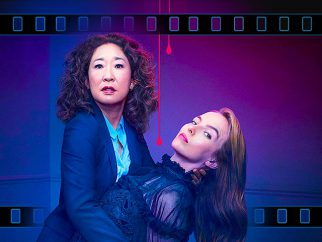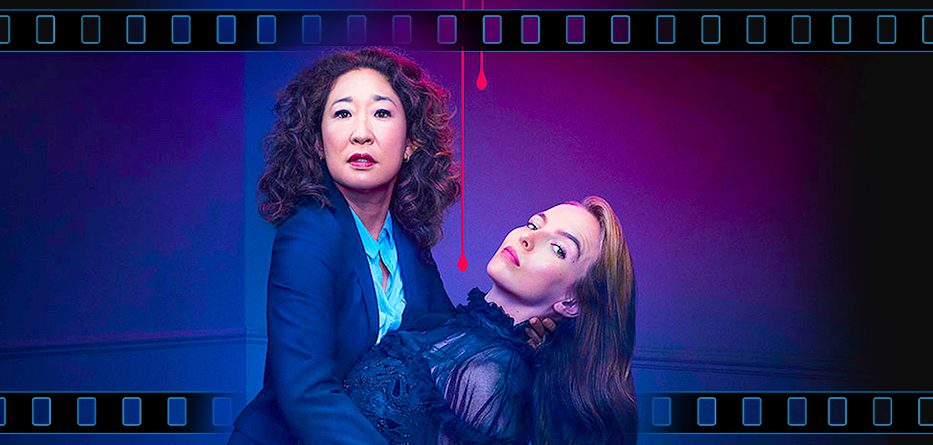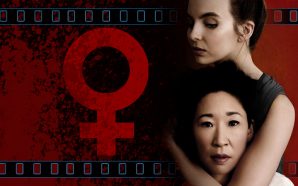Sophomore television seasons are always hard. Like that pesky second album follow-up to an unexpected gold-plated disc success, there’s the potentially crippling high expectations and the question of whether you go faster, higher, longer and harder or just spin-out in an entirely new direction, flexing different creative muscles as you go. In that sense, Killing Eve – which finishes its run in the US tonight and, bafflingly doesn’t have a UK start date as yet – had some serious decisions to make.
The first run of Killing Eve was not only anarchic and dark, but felt tightly-paced, despite its globe-trotting. That feeling of cat-and-mouse was largely missing from the second run when it became clear that the various powers-that-be had a vested interest in forming unholy alliances, essentially meaning that Villanelle and Eve were no longer stalking each other as much as circling each warily as they went after the same prey. It’s an interesting set-up, one rich with possibilities, but some of the tension was diluted as the suspension of disbelief became harder and the plot became more and more unlikely while ramping up the levels of its famously delicious snark. The transition from hunter-and-hunted to cautious colleagues happened just a bit too fast and the sub-plot about another killer, The Ghost, ultimately felt under-explored. While the story-arc arguably felt fun but a bit self-indulgent, that’s not to say that the show has lost its edge in the performances. Essentially a series uniquely led by three strong women and hugely talented female actors kept firing on all cylinders with Sandra Oh, Jodie Comer and Fiona Shaw clearly relishing and rising to the moments in the spotlight they were given. Combined with Phoebe Waller-Bridge and Emerald Fennell behind the scenes, its still a tour-de-force of snark, sass and sexual tension.
The story regarding the psychopathic Aaron Peele (Henry Lloyd-Hughes) concludes, but still feels somewhat under-boiled and overblown, as if dragged from a later season of Dexter to fulfil a character that’s distant and aloof and bored with his success – seriously due a comeuppance for his cruelty but never really seen as the maguffin to bring Eve and Villanelle together under pressure. The final moments of this current run – and, again, spoilers for those who haven’t seen the entirety of second series yet – were deliberately designed to somewhat mirror where we left the first season, with one of our lead female protagonists (antagonists – it’s getting hard to tell?) apparently mortally wounded by the other. This time it was the turn of Eve herself to be felled by her opposite number. While Eve stabbed Villanelle at the end of Season One, Polastri was taken out by a bullet in the back from the ‘disappointed’ Villanelle after the former refused the latter’s offer to run away together after the latter manipulated the former into killing one of the even badder-guys, with an axe, no less.. Of course, there are three clear and present indicators that the gunshot wound might not be as fatal as it looked. Firstly… well, the title of the show is, after all, Killing Eve but with a third series already getting the greenlight, it would seem a tad premature to do the titular character in. Secondly, it’s hardly in Villanelle’s modus operandi to shoot people in the back – she prefers to look into their eyes. Thirdly, there’s a well-placed line from horn-dog Hugo (Edward Bluemel) – who is also shot earlier in the episode – about ‘faking being dead’ until his attacker had left. In hindsight, that’s pretty much a flashing neon light as to what happens to Eve.
But with the focus on Eve and Villanelle’s rapidly unravelling mission in Rome, there were notable absences of regular faces from the finale. Carolyn (Shaw) claims Kenny (Sean Delaney) is part of the clean-up team, but he has no screen-time, Nina Sosanya’s Jess is nowhere to be seen and Eve’s estranged husband Nico (having just discovered his school colleague suffocated in the penultimate episode) is also completely missing. Though the series tends to make men merely manipulated pawns of its female ensemble, it has to be noted that Owen McDonnell’s Nico remains one of the most genuinely sympathetic characters in the whole piece – a husband desperately trying to supportively hold onto a wife he knows he’s losing because he can’t give her what she wants and she lying to him that he can.
Even if the production sometimes relied too heavy on putting the overt fun in dysfunction and the sass in assassin, this still remains the guilty pleasure of must-watch television and it certainly deserves all the acclaim and notable awards it is accumulating…

- Acting9
- Direction9
- Dialogue10
- Pacing9
- Seasonal success8











